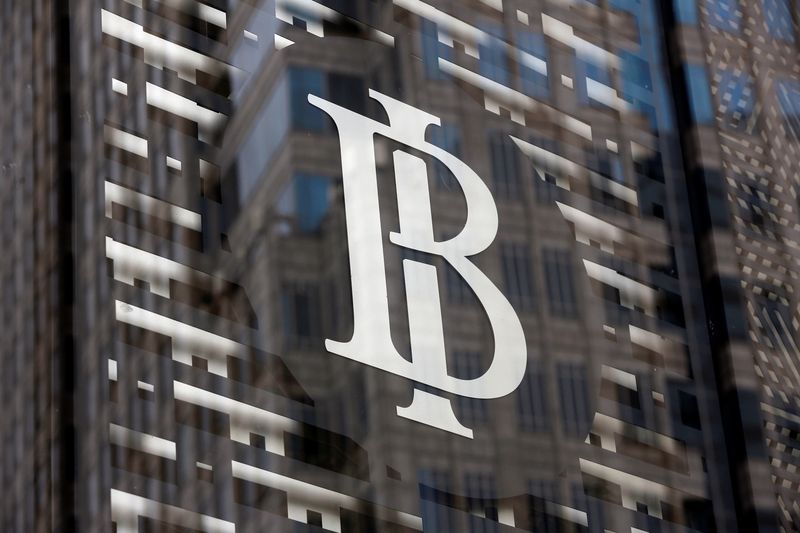By Gayatri Suroyo and Stefanno Sulaiman
JAKARTA (Reuters) -Indonesia's central bank held its benchmark interest rate steady on Wednesday, as expected, saying the current level remained consistent to manage inflation through to 2025 and stabilise the rupiah, while eyeing room for easing in the fourth quarter.
The seven-day reverse repurchase rate, known as the Bank Indonesia (BI) Rate, was maintained at 6.25%, where it has been since April, as expected by all 35 economists polled by Reuters. BI also kept other policy rates unchanged.
Governor Perry Warjiyo said the decision would ensure inflation remained within the target range in 2024 and 2025, while the short-term policy focus was directed at strengthening the rupiah currency and attracting inflows.
BI has been focusing on managing the rupiah's volatility, including by intervening in the currency and bond markets, with inflation already within its target range since the middle of last year.
The rupiah has seen bouts of weakness this year due to a resilient U.S. dollar as well as investors' concerns regarding Jakarta's fiscal prudence under an incoming government that is set to take office in October.
The currency has recovered by around 2% in recent weeks since hitting a four-year low last month.
The rupiah was among the biggest gainers on Wednesday in emerging Asia as market participants bets on earlier monetary easing by the U.S. Federal Reserve. It strengthened further to as much as 16,090 per dollar after BI's rate decision versus 16,125 before the announcement.
Warjiyo said there is rising possibility of Fed cutting rates in November, compared to BI's earlier estimate in December, which may lead to a more stable or strengthening rupiah, giving room for BI to ease its own policy rates.
Warjiyo said earlier this month BI would assess the possibility of reducing borrowing costs in Southeast Asia's largest economy in the fourth quarter.
"We still see room for BI rate to ease in the fourth quarter. Even with the Fed expected to ease earlier ... everything would still be data-dependent," he said, when asked whether BI would also move forward its outlook on policy easing.
Bank Permata economist Josua Pardede maintained his forecast that BI will keep its policy rate unchanged throughout 2024 and may cut in the first quarter next year.

While inflation remains low, there is an emerging risk from a potentially wider fiscal deficit on the domestic front and rising political uncertainties in Europe and the U.S., he added.
"Such issues trigger risk-off sentiment, potentially limiting capital inflows and jeopardising rupiah stability," Pardede said in a note.